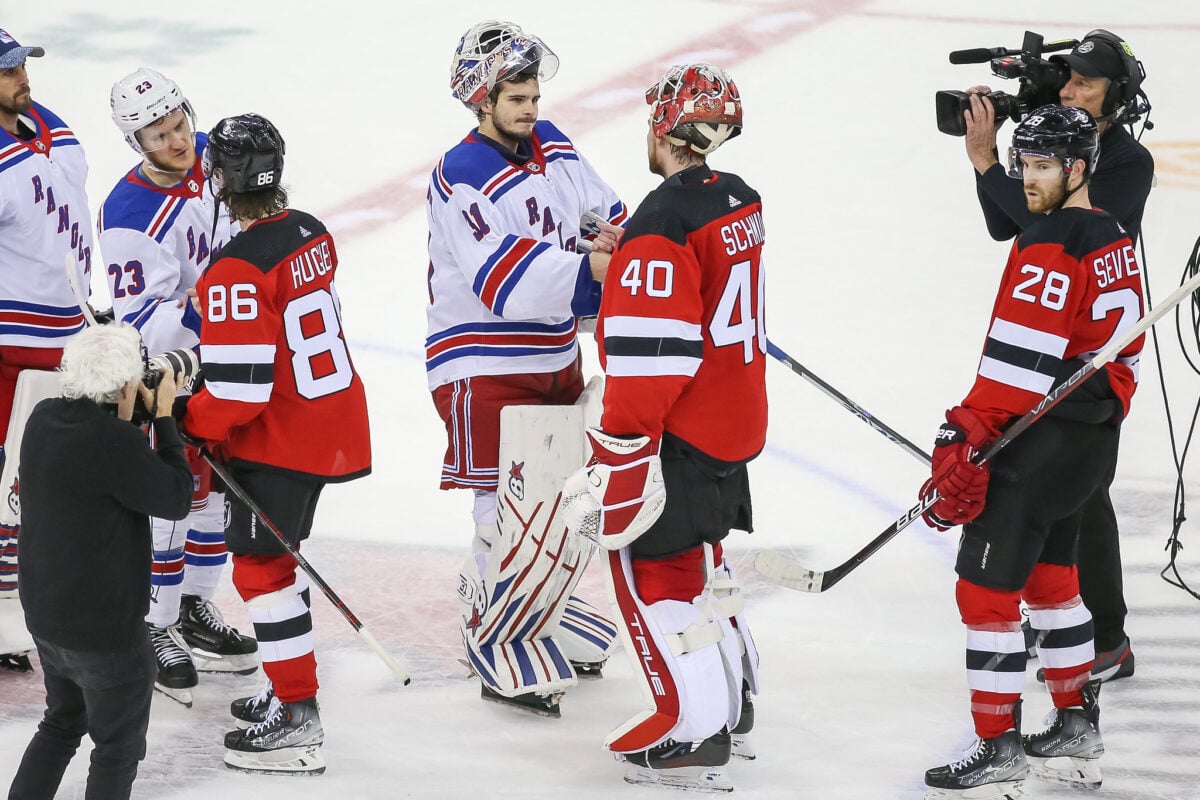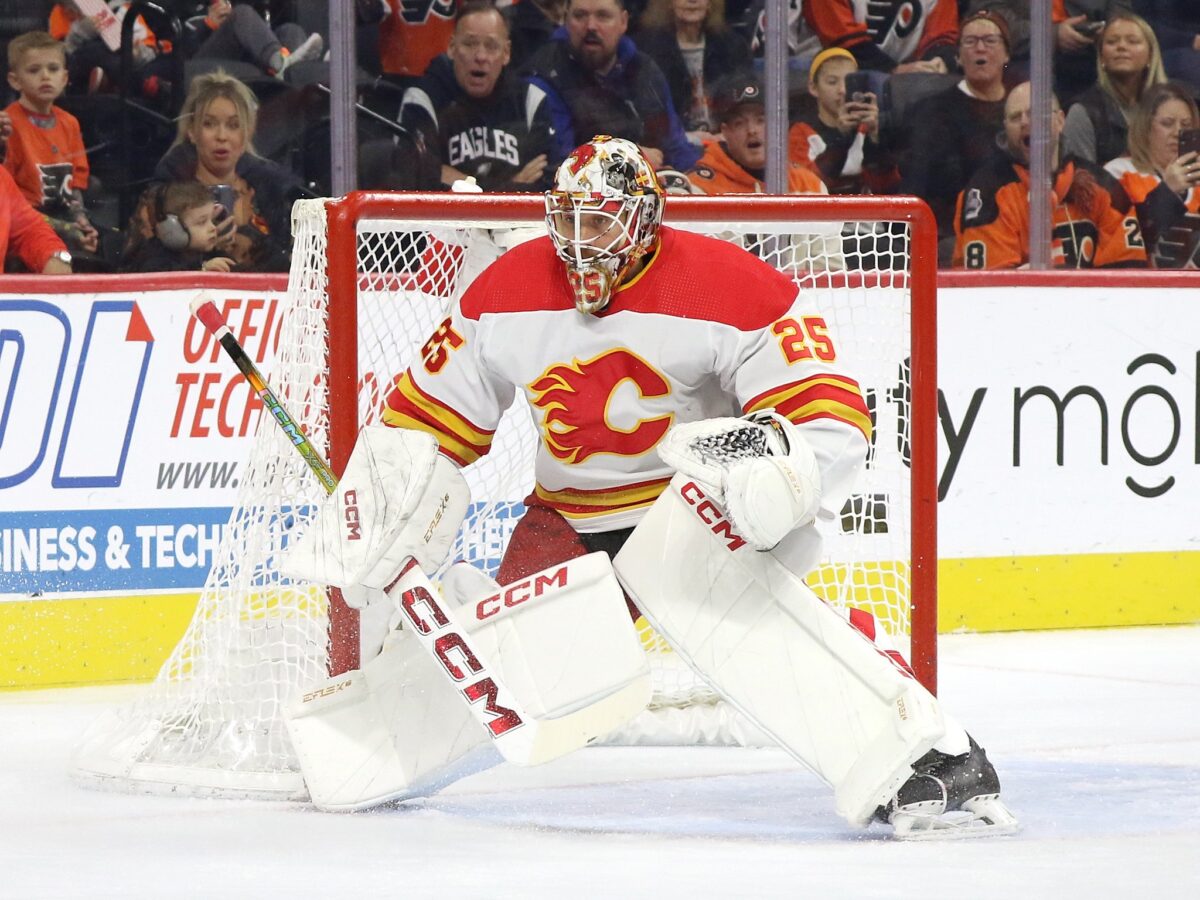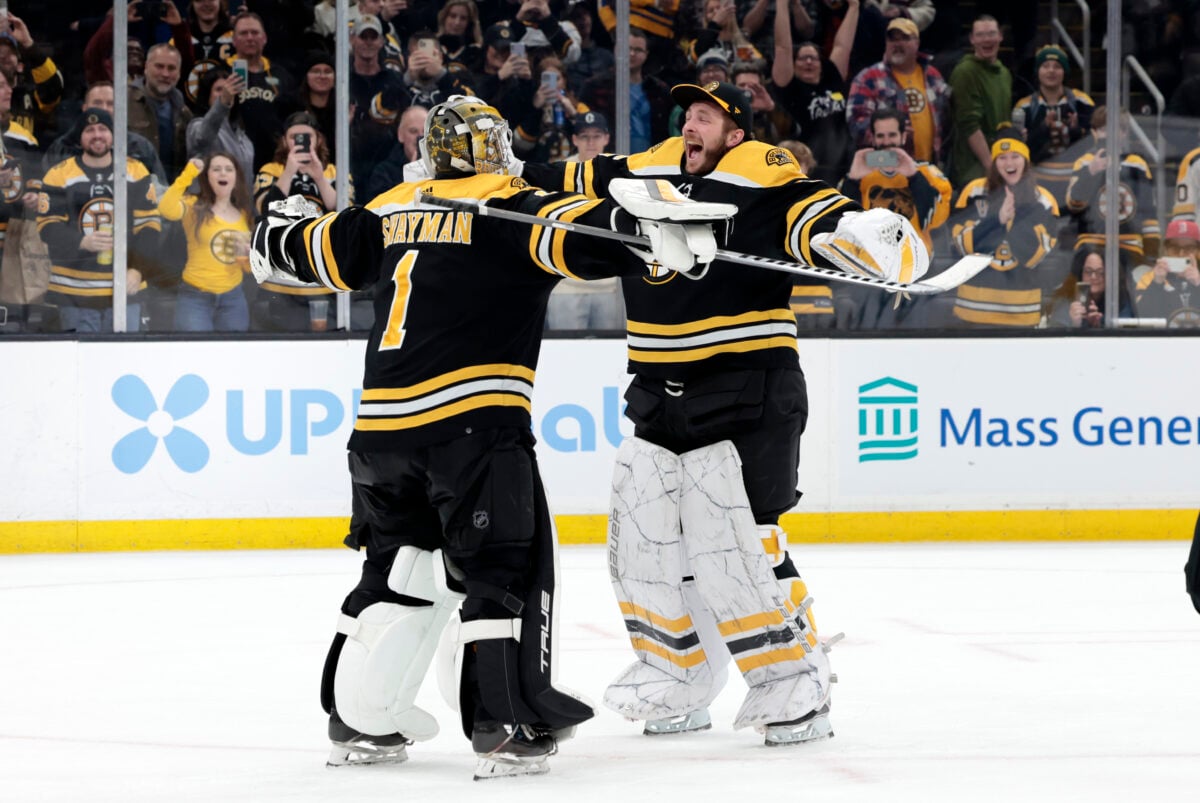Another promising New Jersey Devils season was derailed by indecision, injuries, and an inability to stop pucks. Almost everything that could go wrong over the first 53 games did, yet they emerged from the Stadium Series win over the Philadelphia Flyers within striking distance. Despite a favorable schedule and a nearly fully healthy lineup, the Devils responded by going 3-7 in the subsequent ten games, ending head coach Lindy Ruff’s tenure and extinguishing any hopes at a late run to the playoffs.
Related: Devils Need to Trade Toffoli to Be Contenders in 2024-25
Almost three weeks to the day of the victory at MetLife Stadium, general manager Tom Fitzgerald met with the media lamenting what could have been in a season the Devils had begun as a dark-horse Stanley Cup candidate. His hesitation in fixing the goalie problem, which became apparent after the Carolina Hurricanes dismantled the team on a national stage last May, is the leading cause of the Devils’ plunge in the standings. He admitted as much over two press conferences spanning three days last week and with his moves at the deadline acquiring veterans Kaapo Kahkonen and Jake Allen while jettisoning Vitek Vanecek to San Jose. With two bonafide 1B options on the roster and four up-and-coming young goalies, how Fitzgerald chooses to navigate free agency this summer will go a long way towards determining whether last season was a fluke or that success is sustainable if built around the current core.
Battle to Be 1B
Currently, the Devils sit 27th in team goals-against average (GAA) and 32nd in team save percentage (SV%). They have suffered all season from not having a 1A goalie, let alone a competent backup. Fitzgerald determined that the price for acquiring a 1A (starter) at the deadline was prohibitive and that his resources would be better spent on big game hunting for a true 1A over the summer. Instead, he traded minimal assets for Allen and swapped Vanecek and a draft pick for Kahkonen. Acquiring the two veterans stabilized the crease for the rest of the regular season. It gave Fitzgerald options moving forward with either of them or the young, yet inconsistent, tandem of Akira Schmid and Nico Daws. Schmid and Daws each were given opportunities to seize control of the starter’s job, with neither distinguishing themselves in the process.

So far in their Devils tenure, Kahkonen and Allen have gotten a turn in the net. Kahkonen showed well in a loss to the New York Rangers on March 11, keeping the Devils in the game. Allen had a nightmare start to his game against the Dallas Stars on March 14, giving up a goal on the first shot he faced only 15 seconds into his Devils career. After the Devils exploded for three second-period goals, he stopped a flurry of seven shots in two minutes of the second, some in spectacular fashion, and held on for a huge 6-2 win, ending the contest by stopping 34 shots in a row.
With a year left on his contract at a reasonable cap hit, Allen is the odds-on favorite to return to New Jersey next season as the backup. According to Fitzgerald, the value in the Kahkonen deal was getting out from under the $3.4 million owed to Vanecek next season. “This was not about him. It was not about the goalie, it was about the flexibility that this move gives us moving forward.” Kahkonen will get a chance to play, but the Devils value Allen’s presence in the room and experience at a reasonable price, and with the glut of young goalies in the Devils’ system, there likely won’t be room for Kahkonen come training camp.
Devils Organizational Depth
Currently, the organization boasts four homegrown potential NHL starting goalies: Akira Schmid, Nico Daws, Isaac Poulter, and Tyler Brennan. Schmid and Daws have both gotten looks at the NHL level and, other than in brief stretches last season from Schmid, neither has shown the consistency needed for the team to be able to rely on them as they look to return to the postseason. Brennan is the youngest of the group and has tremendous potential, having been one of the highest-ranked North American goalies in his draft class, but he is still a few years away from the NHL. Poulter entered the season as an unknown but dazzled in the American Hockey League (AHL), causing the Devils to sign him to an NHL entry-level contract. Poulter’s future is uncertain but he is unlikely to seriously contend for a chance to break camp with New Jersey.

That leaves Schmid and Daws to compete for what is likely the third goalie spot in the organization. If the last few years are any guide, the team will need at least three goalies to navigate the season. On balance, Daws seems to be the more polished and consistent goaltender, but Schmid showed in last season’s playoffs that he can outplay a Vezina Trophy winner through a five-game series. It is also likely that the Devils will have to make their choice long before training camp, as reports have been that the teams the Devils targeted for a starting goaltender will likely want one of New Jersey’s young netminders in return. The Devils will likely hope whichever goalie remains will get the lion’s share of time in the AHL, honing their game and getting the workload of a starter so they will be ready to become the team’s backup once Allen’s contract expires after the 2024-25 season.
Big Game Hunting
The free agent market for goaltenders this coming off-season is only remarkable for how unremarkable the available players are. If the Devils are to improve the position, the only viable method will be through a trade. Fitzgerald’s decisions this summer regarding his desire to acquire a franchise goaltender will be the most consequential of his career and likely this era of the team’s history. The main three goalies rumored to be available are Jacob Markstrom of the Calgary Flames, Linus Ullmark of the Boston Bruins, and Juuse Saros of the Nashville Predators. Surely, there may be other players that Fitzgerald could pry away from a team, but these are currently the main three on the market.

It seems that the Devils prefer Markstrom, as he has the prototypical size they look for and has been tremendous against high-danger chances this season, regardless of the deterioration of the defense around him, which was decimated through trades. Two years ago, he was the runner-up for the Vezina Trophy, and throughout the last four non-COVID-shortened seasons, he has started no less than 59 games. After a difficult season in 2022-23 that saw his SV% dip under .900 for the first time in his career as a starter, he has returned with a vengeance, posting Vezina-caliber numbers before Calgary threw in the towel. However, he has maintained impressive numbers, including a .910 SV% and 2.68 GAA. According to Money Puck, he is sixth in the NHL with nearly 17 goals saved above expected, putting him in elite company. Markstrom has a no-move clause but has indicated he would waive it. The only concern is the goalie’s age, which should not stop the Devils.
The other targets will likely be Saros and Ullmark. Both are tremendous Vezina-caliber goalies over a number of years. Both are significantly younger than Markstrom and would bring a cheaper salary cap hit in the first year but each also has significant risk. Saros has come on strong down the stretch, leading the upstart Predators on a franchise record winning streak that likely ended any motivation they had to sell him at the deadline. He has one year remaining at $5 million and will seek an extension this summer. The concern with Saros is his size; the diminutive goaltender reminds observers of Jonathan Quick who parlayed his athleticism into multiple Stanley Cups and a long career. Saros is even smaller than Quick and could break down sooner but is still an elite goaltender deserving of investigation.

Ullmark is the reigning Vezina Trophy winner. Like Markstrom, he possesses a no-trade clause and is rumored to have denied waiving his protection for a trade to Los Angeles. The Bruins are a victim of their success and the other half of their goaltending tandem, Jeremy Swayman, is a restricted free agent this summer and in line for a substantial raise. The Bruins will likely have to choose between the two and will settle on Swayman due to performance, cost, and age. The most concerning part of Ullmark’s game is his consistency and putrid numbers in his playoff appearances. Ullmark has proven to be a bonafide NHL starter and is a significant upgrade over any player the Devils have had in the net in years, but is he the goalie they can ride to a Cup? That remains to be seen.
The Devils’ failure to solidify the goaltender position has cost them dearly in two of the last three seasons. Fitzgerald must solve the problem this off-season, or he will not get another chance. The wisest path is to create multiple layers to insulate the position. It starts with picking a veteran backup, cultivating the young goaltenders in the AHL, and finding their franchise goalie on the trade market. The team is built to win; the final piece is goaltending.
